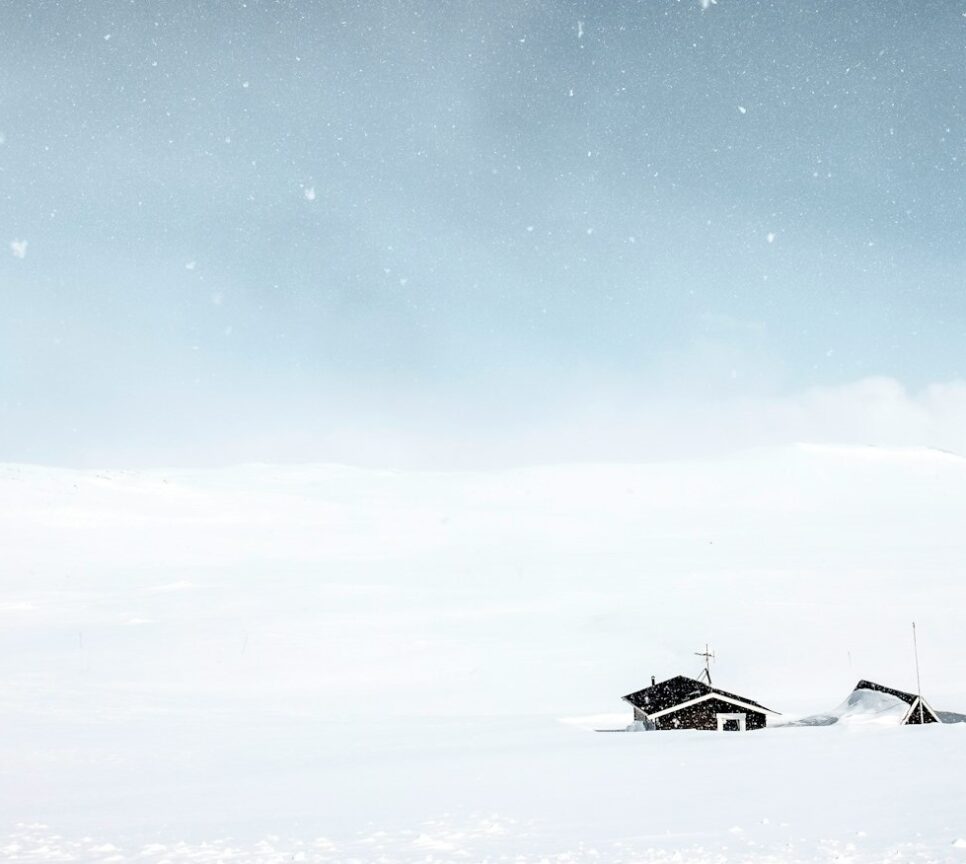Every country has its unique way of celebrating Christmas, but there’s something special about how it’s done in Poland. The blend of deep traditions, a winter landscape, and family closeness creates an atmosphere that stays in your heart forever. Imagine the glow of Christmas lights, the scent of gingerbread, and the sound of beautiful carols—all of this makes Polish Christmas a magical time like no other. In Poland, Christmas is not just about moments spent at the table but also about reflecting on the values that unite generations. Here are seven reasons why Christmas in Poland is so extraordinary.
Christmas Eve – An Evening Full of Magic
In Poland, Christmas officially begins on the evening of December 24th, and Christmas Eve, or “Wigilia,” is the most magical and anticipated moment for Poles. It’s a time that gathers families around the table, connecting generations in an atmosphere filled with tradition and emotion. A table covered with a white cloth, hay placed underneath, and an extra plate set for an unexpected guest are all symbolic elements with deep meaning. The extra plate can symbolize hospitality and care so that no one feels alone during the holidays. In many families, it also reflects the journey of Mary and Joseph, who could not find shelter in Bethlehem, or serves as a tribute to loved ones who have passed away but remain in our hearts.
Traditionally, twelve dishes are prepared for Christmas Eve dinner, and their type varies depending on the region and family traditions passed down from generation to generation. Every family brings unique flavors and memories to the table, creating an atmosphere that is truly one of a kind.
The most important moment of the evening is sharing the “opłatek” (Christmas wafer)—a gesture of forgiveness, kindness, and closeness that often brings tears but can also feel a little awkward. It’s a moment of sincerity that stays in the hearts of everyone gathered.
Fun Fact: It’s said that on Christmas Eve, animals can speak in a human voice—a beautiful legend rooted in old beliefs that adds a touch of magic and mystery to the night.
Winter Scenery Like a Fairy Tale
When you think of Christmas in Poland, an image of snow-covered rooftops, frost-kissed trees, and the crisp air of a winter morning comes to mind. Polish winters add a special charm to the holidays. Imagine strolling through streets illuminated by colorful lights and decorations. At Christmas markets, you can smell mulled wine, gingerbread, and hot chocolate, while wooden stalls offer handmade ornaments and gifts. All of this makes Christmas in Poland feel like something straight out of a fairy tale.
In smaller towns, the scenery becomes even more intimate. Snowdrifts and the quiet of winter evenings create a setting that encourages reflection and relaxation. And in the Polish mountains, Christmas truly feels magical: horse-drawn sleighs take you to midnight mass, and afterward, you can warm up by a fireplace while gazing at stars glittering in the night sky.
Fun Fact: In the mountains, festive sleigh rides with torches, bonfires, and warm mulled wine are a cherished holiday tradition.
Midnight Mass – Carols and Togetherness
The Midnight Mass, or “Pasterka,” celebrated between December 24th and 25th, is one of the most awaited moments of the Polish Christmas season. It’s an event that brings people together regardless of their religious beliefs. Churches filled with candlelight and greenery echo with the sounds of carols sung by the gathered faithful. However, not everyone attends Pasterka—many families continue their Christmas Eve celebrations at home, engaging in conversations over tea or compote, watching festive films, or taking a walk through beautifully decorated streets. For many, Christmas Eve continues with family singing carols, creating a warm and communal atmosphere.
In regions like Podhale, Pasterka has a particularly colorful character. Highlanders wear traditional costumes and play violins, adding a unique folkloric charm to the mass. This extraordinary moment brings old traditions and a spirit of unity together in one magical night.
Fun Fact: Many take the opportunity to enjoy a midnight walk before or after Pasterka—especially in mountainous areas where the views are breathtaking.
Traditions That Unite Generations
Polish Christmas is a true treasure trove of traditions that have survived generations and are still practiced in many homes. Decorating the Christmas tree is one of the most anticipated moments, especially for children. Hanging ornaments, lights, and handmade decorations is not only a way to create a festive mood but also an opportunity to reminisce and talk about how past generations celebrated Christmas.
Sharing the “opłatek” is one of the most moving moments. Everyone exchanges wishes, often filled with emotion and honesty. For many families, Christmas is also an opportunity to cherish traditions like baking gingerbread cookies or singing carols together. Although the custom of carolers visiting homes is fading, in some villages, you can still meet groups of people dressed up, spreading the joy of the season.
Fun Fact: The Christmas trees that now decorate our homes began appearing in Poland in the 18th and 19th centuries. Before that, homes were adorned with sheaves of grain or hanging “podłaźniczka” branches.
Christmas Lasts More Than One Day
In many countries, Christmas is celebrated only on December 25th, but in Poland, the festivities last three days. Christmas Eve kicks off the celebrations, December 25th is a day of gatherings and joy, and December 26th—known as the second day of Christmas—is dedicated to visiting loved ones and continuing the festivities.
Thanks to this extended timeline, Polish Christmas feels more relaxed, allowing people to fully embrace the spirit of the season. It’s an opportunity to visit relatives, soak in the atmosphere, and create memories that will last for years. This holiday schedule lets you truly immerse yourself in the magic of the season.
Fun Fact: The second day of Christmas is becoming increasingly popular for outdoor activities. More Poles are spending it on walks, cold-water swimming (morsowanie), or even family ski trips to local resorts like Szczyrk or Zakopane.

Poland’s Love for Pop Culture Traditions
No Polish Christmas is complete without the film “Home Alone”, which has become almost synonymous with the holiday season. Watched by millions of Poles every year, Kevin feels like an extra member of the family—present at every festive gathering. This tradition, although rooted in pop culture, aligns perfectly with the sense of community and nostalgia we feel during the holidays.
Besides Kevin, Christmas in Poland is a time for watching films and holiday specials that create a warm, nostalgic, and carefree atmosphere. Poles love revisiting classic films like “Love Actually” or “A Christmas Carol”, which remind us of the power of love, friendship, and family values. Holiday TV programming is filled with touching and humorous stories that fill homes with the sounds of Christmas melodies and highlight the significance of this extraordinary time. These moments, spent together with family, laughing and reminiscing over favorite scenes, build unforgettable memories.
Fun Fact: “Home Alone” debuted on Polish screens in the 1990s, and its immense popularity continues to this day. In 2010, Poles submitted a petition when a TV station announced it would not air the film.
Closeness and Togetherness
PPolish Christmas is primarily a time for family, but increasingly, it’s also a time for closest friends. Even those living abroad return for this magical time to be with their loved ones. For many, sharing this special period with friends feels like a natural way to show how important they are in their lives. Generations often gather at the Christmas table, and sometimes friends join in too. Conversations, songs, and shared memories create an atmosphere that’s hard to compare to anything else.
The symbolic empty place at the table reminds us of those who are no longer with us but also highlights the openness and readiness to welcome anyone who knocks on the door. In these moments, the true magic of Christmas is born—the feeling that we are together, and nothing else matters.
Fun Fact: Open Christmas dinners for the lonely and needy are organized in many cities across Poland, welcoming everyone to share in the festive spirit.
Polish Christmas is a time full of magic, tradition, and family warmth. The combination of deep customs with a winter landscape and community makes it truly unique. Could you resist its charm? Experience these extraordinary moments and discover the magic of Polish Christmas!



